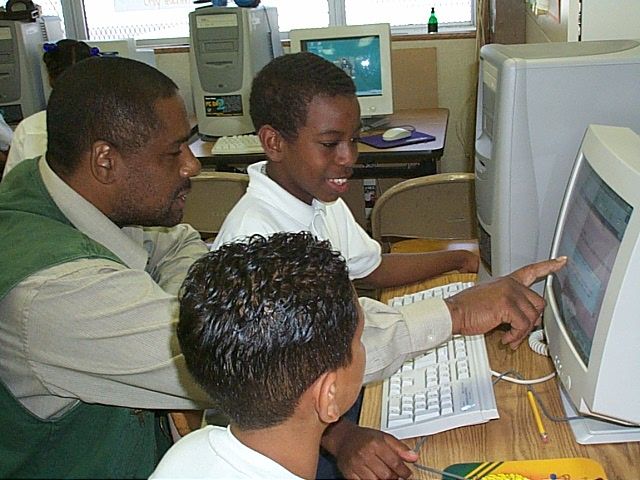Views expressed in opinion columns are the author’s own.
Substitute teachers are usually portrayed as senile and unbelievably oblivious. Not only are they completely unaware of any disturbances, so the stereotype goes, but they also seem to lack the motivation to teach their rowdy group of students.
It’s obvious this interpretation is blatantly incorrect. However, our common perception of substitute teachers is nonetheless important because it raises salient questions about their role in the education system. Should a substitute attempt to completely replace an absent teacher? Or should they serve more of a supplementary role? We don’t expect them to have as much control over a classroom, but we should.
Montgomery County is facing a shortage of substitute teachers, with an average of 120 unfilled substitute teacher requests each day in recent years, according to The Washington Post. To address this issue, the county has decided to relax the necessary qualifications for the job. Instead of requiring a bachelor’s degree, applicants now only need either an associate degree or the equivalent 60 credits.
While lowering standards justifiably raises concerns, the more pressing issue is the lack of substitutes available. A substitute should primarily attempt to ensure the class is engaging with the materials the original teacher provides. As a result, patience and the ability to control potentially disruptive students are more important than academic background.
Speaking from personal experience, temporary substitute teachers do very little “teaching” — they mostly distribute the materials the original teacher provides to them and occasionally lead the class through pre-planned activities. Sometimes, a substitute merely serves as a supervisor, and the entire class is free to work on homework, read or just relax. It’s rare that a teacher requires a substitute — unless they’re a long-term replacement — to lecture students for the entirety of the class.
From my experience, substitute teachers should be familiar with the material to the point that they are capable of answering questions, but they don’t have to be an expert. With an associate degree or the equivalent 60 credits, substitutes should have the necessary background.
It’s also important to note that having a more rigorous academic background doesn’t necessarily translate into being a better teacher. Completing four years of college may mean they’re more knowledgeable about their field, but quantity of education does not lead to the quality of a teacher.
As a result, the principal issue substitute teachers face isn’t necessarily whether they’re intelligent enough, but rather whether they can control their students. However, substitute teachers often face various obstacles — due to the stigma associated with their position, substitutes may command less respect from students than their permanent counterparts.
In my high school, classes with substitute teachers for the day were commonly louder and more disruptive than normal. A common perception among the student body was that substitutes are temporary figures and have little impact on our welfare — for example, we felt we couldn’t get in legitimate trouble or lose points if we didn’t pay attention in class.
Substitutes need to be able to deal with this stigma accordingly and guarantee that their students are on track, a feat that requires both tremendous patience and the ability to connect with students. This isn’t something that can be taught by an ordinary college course; qualifications to become a substitute teacher should focus less on academic background and more on interpersonal skills.
Kevin Hu is a sophomore physiology and neurobiology major. He can be reached at kevxhu@gmail.com.



